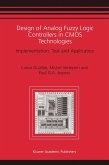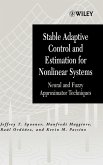Every day we experience the annoyance of having to queue. The phenomenon is becoming more prevalent in our increasingly congested and urbanised society. Not only the visible queues in traffic jams, airport check in desks and supermarkets, but the more common invisible queues caused by voice calls and data packets in optical and wireless channels. Queues cost us time, money and resources; so what is the solution to our greater demand for services than there are facilities? Queuing control plays a crucial role in manufacturing and communication networks around the world. This pioneering approach, using fuzzy control to solve queuing control problems, determines explicit solutions to various types of control in queuing systems. The bulk of results have been developed over the past decade and are presented here together for the first time.
21 detailed case studies demonstrate an efficient departure from classical techniques. Unique work creating a new Research and Development topic. Multidisciplinary approach that will benefit researchers and students throughout the fields of artificial intelligence, operations research, optimal control, Internet techniques, communications and traffic control industries. Equipped with an extensive bibliography for easy reference and scope for further study.
Existing practical problems, especially those that are unresponsive to conventional control techniques, are solved with the introduction of this novel approach. A systematic framework of the 'fuzzy control of queuing networks' is developed through each individual case.
21 detailed case studies demonstrate an efficient departure from classical techniques. Unique work creating a new Research and Development topic. Multidisciplinary approach that will benefit researchers and students throughout the fields of artificial intelligence, operations research, optimal control, Internet techniques, communications and traffic control industries. Equipped with an extensive bibliography for easy reference and scope for further study.
Existing practical problems, especially those that are unresponsive to conventional control techniques, are solved with the introduction of this novel approach. A systematic framework of the 'fuzzy control of queuing networks' is developed through each individual case.
From the reviews: "This book makes a much needed connection between fuzzy control and plants that can readily be modeled as queuing systems ... . The strengths of the book are its systematic approach to structuring control problems and its emphasis on the construction of fuzzy models for various queuing systems. ... the book is unique in linking queuing theory with fuzzy control, making it a valuable reference." (IEEE Control Systems Magazine, June, 2005) "The book provides a number of results in queuing control from the point of view of fuzzy logic. The authors consider fuzzy control as an effective approach in nonlinear or large-scale systems control ... . The material of the book can be useful to advanced undergraduate and graduate students. Also, researchers and practitioners in the field of queuing control, systems analysis, manufacturing, and communications may benefit from it." (Oleg K. Zakusilo, Zentralblatt MATH, Vol. 1064, 2005) "The book Fuzzy Control of Queuing Systems by R. Zhang, Y. Phillis, and V. Kouikoglou presents the first attempt to apply fuzzy logic control to various queuing problems systematically. The book has an excellent coverage and clear presentation. ... The book structure is suitable for teaching a graduate course in the topic. Its style makes it accessible." (Mohamed B. Trabia, International Journal of Robust and Nonlinear Control, Vol. 17, 2007)








